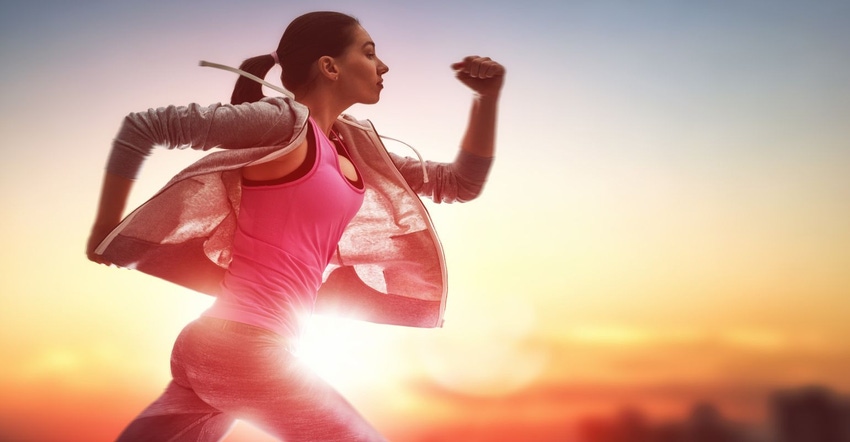A new study found a specific strain of Bacillus probiotic attenuated inflammation in athletes.

Fresh off the heels of SupplySide West, where immune function and inflammation featured in the Strategies for Exercise Recovery workshop, new published study results show regular consumption of a specific Bacillus probiotic strain helped athletes boost immunity and recovery from strenuous exercise.
The underlying mechanism of these recovery benefits is in the probiotic’s ability to reduce levels of tumor necrosis fact-alpha (TNFα), a pro-inflammatory compound associated with increased post-exercise immune system dysregulation, physical stress, mood alterations and disrupted sleep.
Researchers from the Exercise and Nutrition Science Graduate Program at Lipscomb University in Nashville published results from their study in September (Sports. 2018; 6(3):70), as a follow up to their earlier study, conducted with exercise researchers from Kennesaw State University in Georgia, that tied regular intake of the same probiotic in female athletes to improved body composition and athletic performance (J Strength & Conditioning. June 2018; online ahead of print).
The probiotic used in the studies was Bacillus subtilis DE111®, from Deerland Probiotics & Enzymes, a genome sequenced spore-forming probiotic designed for digestive and immune health.
In addition to the study results on anti-inflammatory action targeting TNFα, John Deaton, Ph.D., vice president of science and technology at Deerland, said, “While not significant, DE111 may promote a more favorable metabolism in trained athletes as indicated by lower cortisol levels following treatment.”
Study: Supplement, exercise, results
The double blind, controlled research involved 25 Division One baseball players randomly assigned to take either a probiotic (DE111) or placebo for 12 weeks. The players visited the Human Performance Lab once before and once after the 12-week offseason training program, which involved resistance, sprinting, jumping and agility protocols. Blood was drawn from both visits and analyzed for TNFα, circulating testosterone, cortisol, IL-10 and zonulin. Saliva was also assayed for salivary immunoglobulin A (SIgA) and SIgM, markers of mucosal immunity.
Unlike in their June 2018 study on female athletes, researchers found no differences in body composition or performance measures between the male baseball players taking supplement and those taking placebo. However, they found TNFα concentrations were significantly lower in those taking probiotic than in those taking placebo.
The results may be promising for athletes facing post-exercise immune dysregulation, as well as muscle recovery and development challenges.
“College athletes typically undergo periods of elevated stress both physically and mentally, which may negatively affect recovery and adaptation,” the researchers wrote, adding that increased TNFα levels have been linked to suppressed protein synthesis, disordered sleep, and impaired muscular performance—TNFα impairs protein synthesis in skeletal muscle by decreasing messenger RNA (mRNA) translational efficiency (Am J Physiol Endocrinol Metab. 2002 Feb;282(2):E336-47). “While elevated levels of inflammation are generally regarded as detrimental to recovery and adaptation, our athletes experienced similar physical adaptations regardless of treatment group.”
In highlighting DE111’s potential support for recovery from intense exercise, Deaton noted the dietary focus while doing strenuous activity is to provide the right nutrients to build muscle (protein) and promote recovery (reduced inflammation). Based on the study results, he assured probiotics, including Bacillus subtilis DE111, can help by producing enzymes to help break down protein and reduce inflammatory compounds that arise during exercise.
However, the study researchers called the results on TNFα attenuation promising, but they said the lack of significant differences on the body composition and performance parameters makes it difficult to definitively determine the practical relevance of decreased inflammation in athletes. They reported their study was limited by lack of direct measures on stressors, such as assessments on sleep patterns, academic stress, social influences and training volume and load. Including such parameters “would provide a better picture of the demands of college student-athletes, and potential practical relevance of probiotic administration,” they reasoned. A bigger study population might also enable better detection of biomarker effects, they suggested.
About the Author(s)
You May Also Like






.png?width=800&auto=webp&quality=80&disable=upscale)